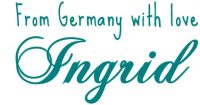![]()
FamilySearch Indexing benefits everyone who is searching for their ancestors – and everyone who works as indexer. Trust me, it does.
According to the American weekly news magazine TIME “genealogy is the second most popular hobby in the U.S. after gardening […] and the second most visited category of websites, after pornography.“
Maybe you ARE one of those people trying to trace back their family… Then very likely you’d love to have some help to find out when and where your ancestors were born, have married or have been buried. Unfortunately most genealogical records don’t come with registers. And here’s where indexing comes into play.
![Family Search Indexing benefits indexers and genealogists alike. [www.lovablehistory.com]](http://www.lovablehistory.com/wp-content/uploads/2017/01/lovable-history-indexing-intro-b.jpg)
Online projects
There are several projects that offer genealogical name indexes like Ancestry, GeneaNet and others. But since FamilySearch is the one I’m primarily working with I’ll be using that as example.
It’s not only that you can find information on FamilySearch.org or share your own ances-tree (I know, I know, family tree or pedigree, just couldn’t resist…), you can also contribute as a volunteer.
FamilySearch Indexing is an online crowdsourcing project which was started in 2006. A similar (though offline) project, called “name extraction program”, using index cards and microfilm/-fiche was in place for several decades before that.
My mom did that for a very long time, pouring over (ledger size?) black-and-white photocopies and transcribing the names and dates onto punch cards with a machine-readable handwriting(!) she adapted because of this program. She still has a very square handwriting still even though she didn’t fill out genealogical punch cards for decades 🙂
Thousands upon thousands of volunteer indexers worldwide decipher genealogical records online. They transcribe the records’ contents into a freely searchable online database. That helps genealogists to find their ancestors’ names and locations much quicker than before.
The FamilySearch Indexing data are no “originals”, neither are the name indexes of Ancestry, My Heritage or GeneaNet. Therefore it’s always important to double check your findings with the originals! But if you use FamilySearch as a name register, it offers invaluable information where to find your ancestry. And that’s how I mainly use it.
![Family Search Indexing benefits indexers and genealogists alike. [www.lovablehistory.com]](http://www.lovablehistory.com/wp-content/uploads/2017/01/lovable-history-indexing-intro-screenshot-b.jpg)
FamilySearch Indexing benefits both indexers and genealogists
Ever since FamilySearch has made its data available to genealogical researchers, I benefitted from the work of others.
At some point I decided it’s time for me to repay the help I received. So I joined the crowd of indexers to transcribe genealogical records. And it has been an interesting journey so far. Sometimes it was frustrating, often challenging and usually satisfying.
But most of all it’s an incredibly effective way to get more experience in reading individual handwriting styles. It improved my ability to decipher sometimes illegible scribbles that German priests and officials left behind. Now I know the challenges of transcribing dozens or even hundreds of individual handwritings. Now I know how careless some of the writers were with their work. This made me realize how many more name variations I will have to look for when I search for someone in an index or register.
And it made me realize how easy it is to point out errors if someone else made them. Double-checking whatever you just typed is a must for every researcher. Yes, there are arbitrators checking your Indexing work as well. But if both indexers and the arbitrators do this that means three pairs of eyes instead of just one.
And… I have become more understanding about errors because I know how easy it is to make them in the first place. Doesn’t mean we have to become lenient against sloppy work, but mistakes happen even if someone is everything but lenient.
And it’s a way to say thank you to all the busy transcribers who helped me so many times. Through them I was able to decide which church registers to search through next – and to find something.
Starting a work day with a few minutes of indexing old records seems one good way for me to get my still sleepy brain working in the morning… 😉
![]()
What about you? Have you worked as a volunteer before? What sort of work did you do, what kind of experience did you you have? Did you ever inspire others to join you?
![Family Search Indexing benefits indexers and genealogists alike. [www.lovablehistory.com]](http://www.lovablehistory.com/wp-content/uploads/2016/10/lovable-history-indexing-intro-p-487x800.jpg)
![]()

Leave a Reply